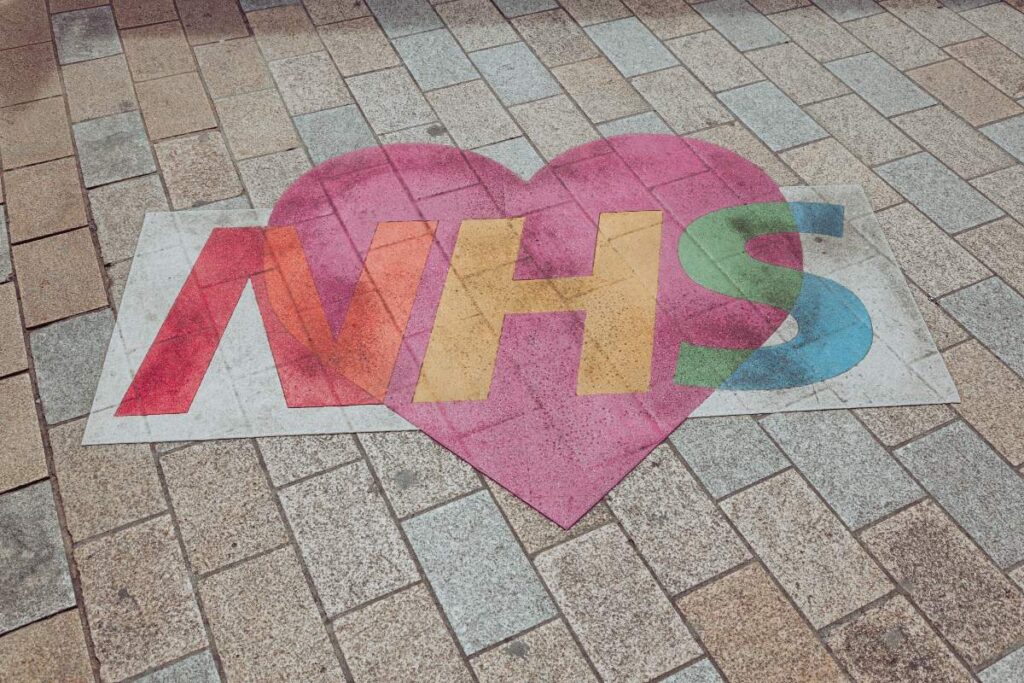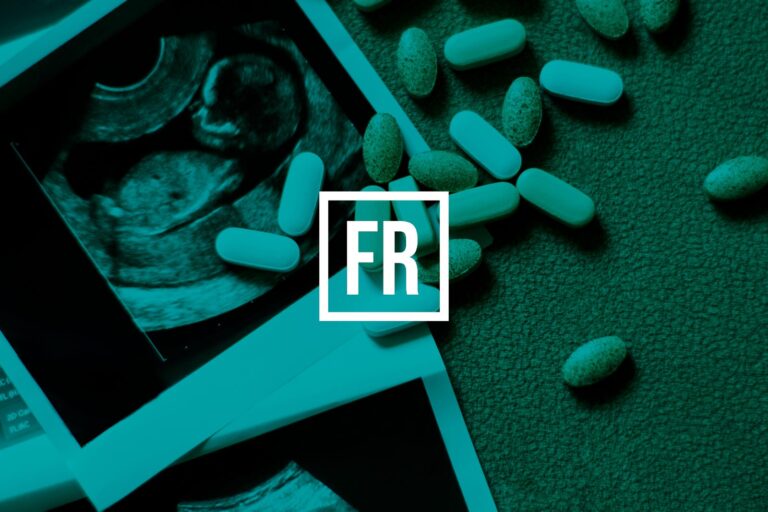Choosing IVF treatment is a significant decision, often influenced by emotional, financial, and practical factors. In the UK, NHS-funded IVF offers a pathway for individuals and couples seeking fertility assistance, but eligibility requirements, funding availability, and wait times vary across regions.
This guide outlines the NHS funding landscape in England, Scotland, Wales, and Northern Ireland, offering insights into eligibility criteria and treatment options to empower you on your fertility journey.
NHS IVF Eligibility and the “Postcode Lottery”
The NHS provides funding for IVF in certain cases, but resources are limited, leading to stringent eligibility rules. The National Institute for Health and Care Excellence (NICE) provides general guidelines; however, these are not binding. Local Integrated Care Boards (ICBs) manage budgets and decide on funding rules, leading to the “postcode lottery” effect, where access to IVF varies by region.
NICE Guidelines Overview :
- Women under 40: Generally eligible for up to three IVF cycles
- Women aged 40–42: May receive one cycle if they meet criteria, including adequate ovarian reserve and no prior IVF cycles.
ICB Variations: While NICE guidelines provide a base, each ICB applies different criteria, meaning a person’s location directly impacts their access to funded IVF.
Key NHS IVF Eligibility Criteria
Each ICB may impose its own conditions, but there are common eligibility factors across the UK:
| Criteria | Details |
|---|---|
| Age | Women under 40 may receive up to three cycles; women 40–42 may qualify for one cycle. |
| Fertility History | Couples must demonstrate two to three years of unsuccessful conception, or failed IUI cycles for same-sex couples |
| BMI | Both partners typically need a BMI between 19–30, to optimize fertility and pregnancy outcomes |
| Relationship Status | Some ICBs require a stable cohabiting relationship of 1–3 years; single individuals may qualify in specific areas |
| Parental Status | Many ICBs disqualify applicants with children, even from previous relationships, though this depends on location. |

IVF on NHS in England
Access to NHS-funded IVF in England is often described as a “postcode lottery,” where Clinical Commissioning Groups (CCGs) determine eligibility criteria and the number of cycles funded. This creates significant regional disparities. For example:
Some areas may fund up to three cycles for eligible couples, while others provide no funding at all.
Eligibility factors often include:
- Age (generally under 40 for full funding).
- Lifestyle factors such as smoking or BMI.
- Whether either partner has existing children.
Due to this variability, prospective patients are encouraged to check the specific policies of their local CCG to understand their options.
Who is eligible for IVF on NHS in England
| IVF on NHS – Who is eligible in England? | Example criteria (depends on specific region) |
| Children | No children from previous relationships for either partner. (Roughly 90 per cent of CCGs rule out couples if one person already has a child.*) |
| BMI | Below BMI of 30 Above BMI of 19 |
| Lifestyle | – Non-smoker – some areas specify how long you must wait after quitting smoking. – Attending a quit programme – Alcohol consumption – moderate or none – Recreational drugs |
| Relationship status | Stable co-habiting relationship for 1 year. Or 2 years. Or 3. Some areas do not fund treatment for same-sex couples. |
IVF on NHS in Scotland
Scotland has a more standardized and equitable system for NHS-funded IVF, offering up to three full cycles for eligible women under 40. The eligibility criteria, based on NICE guidelines, are applied uniformly, which minimizes the disparities seen in England.
Who is eligible for IVF on NHS in Scotland
- Stable, co-habiting relationship for at least two years.
- Healthy weight, non-smoking, alcohol and drug-free.
| IVF on NHS in Scotland - Who is eligible? | Criteria |
| Children | Healthy weight, non-smoking, alcohol and drug-free. |
| Relationship | Stable, co-habiting relationship for at least two years. Same-sex couples get DI (donor insemination) cycles before being offered IVF |
IVF on NHS in Wales
In Wales, the NHS funds up to two IVF cycles for women under 40 who meet eligibility criteria. While fewer cycles are offered compared to Scotland, the criteria are consistently applied across the nation. Factors influencing eligibility include:
- Age and medical need.
- Whether there are existing children.
- The outcome of any previous IVF attempts.
This consistency aims to reduce confusion and ensure fairness in access to fertility treatment.
| IVF on NHS in Wales - Who is eligible? | Criteria |
| Children | No previous children – for at least one partner |
| Age | Men under 55, Women over 20 |
| Healthy Lifestyle | BMI – between 19 and 30 Non-smoking |
| Previous Treatment | Three previous IVF cycles - including privately funded – rules you out. |
IVF on NHS in Northern Ireland
Northern Ireland offers the most limited NHS-funded IVF in the UK, providing just one cycle to eligible women under 40. While the eligibility criteria mirror those used in the other nations (age, existing children, and medical circumstances), the funding restrictions mean that many couples may need to explore private treatment options after their single funded cycle.
Who is eligible for IVF on NHS in Northern Ireland
- BMI from 19 up to 30
- Neither partner previously sterilised
- 3 previous IVF cycles would rule you out
- Must meet HFEA requirements on welfare of child
| IVF on NHS in Northern Ireland - Who is eligible? | Category |
| Welfare | Must meet HFEA requirements on welfare of child |
| Healthy Lifestyle | BMI from 19 up to 30 |
| Relationships | Same-sex couples qualify |
| Previous Treatment | 3 previous IVF cycles would rule you out Neither partner previously sterilised |
Step-by-Step Process for NHS IVF Treatment
Step 1: Consult Your GP for Local Requirements
Begin by speaking with your GP, who can provide details on local ICB criteria. They will review your medical history and may refer you to a fertility specialist if you qualify.
Step 2: Fertility Testing and Diagnostic Evaluation
Upon referral, you may undergo various fertility tests to determine if IVF is appropriate. Tests can include:
- Hormone Blood Tests: Evaluate ovarian reserve and hormone levels.
- Semen Analysis: Assesses sperm health, including count, motility, and morphology.
- Ultrasound Scans: Identifies any physical conditions that may impact fertility, such as cysts or fibroids.
Step 3: Funding Application and Approval Process
The fertility specialist applies to the ICB for funding, with approval times ranging from 6–8 weeks or more depending on local demand and budget constraints.
Step 4: Navigating the Waiting List table
Wait times for NHS-funded IVF vary widely, often influenced by regional factors:
- Funding Levels: High-demand areas have longer wait times.
- Clinic Capacity: Regions with fewer clinics may experience delays.
| Region | Typical Waiting Time |
|---|---|
| England | 6 months to over 2 years |
| Scotland | 6 months to 18 months |
| Wales | 6 months to 18 months |
| Northern Ireland | 6 months to over 2 years |
Step 5: Choosing an NHS Clinic and Preparing for Treatment
NHS IVF is limited to specific clinics within each region. If options are available, researching success rates, patient reviews, and facilities can help you make an informed choice.
Costs of IVF – NHS vs. Private Options
The cost and coverage of IVF treatments can differ greatly between NHS-funded services and private clinics in the UK.
NHS-Funded IVF Costs
According to the NHS, patients eligible for funded IVF treatment receive basic IVF services without out-of-pocket expenses. However, coverage varies by region and Integrated Care Board (ICB) policies.
NHS-funded IVF generally includes essential components:
- Initial consultations
- Basic fertility medications
- Standard egg retrieval and embryo transfer procedures
Limitations
NHS funding typically does not cover additional treatments or specialized options, such as:
- ICSI (Intracytoplasmic Sperm Injection), used in cases of male infertility
- Genetic testing, including preimplantation genetic testing (PGT) for embryo screening
Patients may need to cover these specialized procedures out-of-pocket if they choose or require them, as most NHS guidelines do not fund these services.
Private IVF Costs in the UK
For those ineligible for NHS-funded IVF, private treatment can be a significant expense. Private fertility clinics in the UK generally offer a full range of services, but each treatment aspect has a separate cost.
Estimated Costs:
- £3,500 and £7,000 per IVF cycle with own eggs without medications, including all necessary basic IVF techniques, visits and scans.
- £7,000 to £12,000 per egg donation cycle without recipient medications, including all necessary basic IVF techniques and donor’s compensation and costs.
These costs are approximate and can vary widely by clinic and patient needs. Private clinics may also offer financing options or package deals for multiple cycles.
You may be interested in reading: IVF cost in the UK – a guide to private IVF costs
Considering IVF Abroad – Benefits and Limitations
| Country | Typical Cost Range (with own eggs) | Key Features |
|---|---|---|
| Spain | £3,000–£5,600 | Advanced options, including egg donation and genetic testing. |
| Greece | £2,200–£3,000 | Affordable options with shorter wait times and affordable embryo freezing. |
| Czech Republic | £1,800–£3,000 | Comprehensive packages with affordability for international patients. |
Considerations:
- Cost Savings: IVF abroad can often be more affordable than private IVF in the UK.
- Legal and Ethical Factors: Different countries have varying laws; for example, UK laws require identifiable donors, while some countries allow anonymous donations.
IVF on NHS – funding eligibility in the UK – final thoughts and FAQs
The NHS, private, and international IVF paths each offer distinct benefits and challenges. By evaluating criteria, consulting with healthcare providers, and understanding your options, you can choose the path that aligns best with your personal needs and goals.
How does the cost of NHS-funded IVF compare to private IVF in the UK?
The NHS covers key components of IVF, such as consultations, medications, and embryo transfers. Private IVF, by contrast, is paid out of pocket, often costing £5,000–£10,000 per cycle with additional costs for specialized treatments.
NHS-funded IVF is generally more limited, as certain procedures like ICSI and genetic testing are not usually covered. Patients who require these advanced options may consider private treatment.
Why might someone choose IVF abroad, and what are the typical costs?
IVF abroad offers a cost-effective alternative to private IVF in the UK, with access to high-quality clinics, shorter wait times, and additional options, such as egg donation. However, it is crucial to understand the legal and ethical considerations in each country.
Considerations: Different countries have varying legal policies on anonymity in egg and sperm donation, embryo handling, and patient rights, which may differ from UK standards.
This article might interest you: IVF Cost Abroad – 2024 Guide
What are the main advantages and disadvantages of seeking IVF treatment abroad?
Advantages:
- Cost Savings: IVF abroad can be significantly cheaper than private IVF in the UK.
- Availability: Shorter wait times and access to advanced procedures.
- Comprehensive Packages: Many clinics offer bundled services, such as consultation, medications, and embryo transfer, often at a lower cost.
Disadvantages:
- Legal Variations: Some countries have laws that differ from UK standards (e.g., donor anonymity, embryo limits).
- Travel and Logistical Challenges: Treatment abroad requires travel, which can add costs and logistical planning.
- Quality Variance: Not all international clinics meet the same standards, so thorough research is necessary.
Are single women and same-sex couples eligible for NHS-funded IVF?
Eligibility for single women and same-sex couples depends on regional policies:
- Single Women: In some regions, single women qualify for IVF funding, but others may exclude them.
- Same-Sex Couples: Some areas fund DI (donor insemination) cycles before IVF. However, this varies, and certain ICBs may have stricter eligibility requirements.
What additional costs should I expect if I choose private IVF?
Beyond the basic IVF cycle cost, private IVF often includes extra charges for add-ons and specialized treatments:
| Additional Treatment | Typical Cost |
|---|---|
| Embryo Freezing | £600 – £1,250 per year |
| ICSI | £800 – £1,400 |
| Blastocyst Culture | £400 – £800 |
| PGT-A / PGS genetic embryo testing (per set of 4 embryos) | £1,600 – £3,550 |
Patients should consider these potential costs when planning for private IVF, as specialized treatments are not generally covered by NHS funding.



